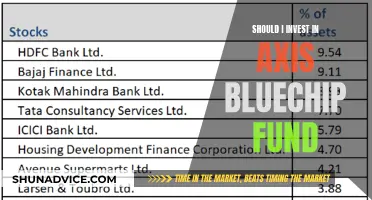
Municipal bond funds are a great way to invest in dividend municipal bonds. Municipal bonds are debt securities issued by a state, municipality, county, or special purpose district (such as a public school or airport) to finance capital expenditures. Municipal bond funds are typically exempt from federal taxes and, in many cases, state and local taxes as well, making them a tax-efficient investment. They are usually considered low-risk investments with a very low historical default rate. There are two main types of municipal bonds: general obligation bonds and revenue bonds. General obligation bonds are secured by the issuer's taxation authority, while revenue bonds are backed by specific revenue streams such as taxes or fees. When investing in municipal bond funds, individuals can either purchase individual bonds or invest in a mutual fund or exchange-traded fund (ETF) that holds a diverse range of municipal bonds. These funds provide the benefits of professional management, broader diversification, and the potential for higher yields.
| Characteristics | Values |
|---|---|
| Tax status | Municipal bond funds are usually exempt from federal taxes, and if issued within the investor's state of residence, may also be exempt from state taxes. |
| Risk | Municipal bonds are considered low-risk investments with a very low historical default rate. |
| Returns | Municipal bonds have generated higher long-term returns than cash but have less growth potential than stocks. |
| Management | Municipal bond funds are professionally managed, offering monthly distributions and other structural advantages. |
| Distribution | Funds pay distributions monthly, quarterly, semi-annually, or annually. |
| Yield | Municipal bonds often pay out less than taxable bonds but can be appealing for investors in higher tax brackets. |
| Investment strategy | Municipal bonds are suitable for a taxable investment strategy but not for tax-advantaged retirement accounts. |
| Buying options | Municipal bonds can be purchased individually or through mutual funds or exchange-traded funds (ETFs). |
What You'll Learn

Municipal bond funds vs. individual bonds
Municipal bonds are popular investment instruments, especially for those looking for stable and tax-free income. But when it comes to investing in municipal bonds, you have two main options: buying individual municipal bonds or investing in municipal bond funds. So, what's the difference, and which one is the better choice? Let's break it down.
Individual Municipal Bonds
Buying individual municipal bonds gives you greater control over your investment portfolio. You get to choose exactly which bonds to buy and hold until maturity, or you can decide to sell them before they mature. This level of control allows you to manage your income stream more effectively, as you know the maturity dates and coupon payment dates of your bonds. Additionally, individual bonds usually pay coupon payments twice a year, providing a predictable income stream.
However, investing in individual municipal bonds requires significant time and financial resources. Building a diversified portfolio of individual bonds can be costly, as you need to purchase bonds from various issuers to reduce risk. This also means conducting extensive research to assess the financial stability of each issuer and determine if the bond's price is reasonable. The lack of diversification in individual bonds can create unnecessary risks, especially in the long term when default risk is inherently higher.
Municipal Bond Funds
Municipal bond funds, on the other hand, are managed funds that invest in a pool of municipal bonds. These funds are often diversified across different types of bonds, including short-term, medium-term, long-term, government, and corporate bonds. By investing in a fund, you give up some control over the specific bonds in your portfolio, but you gain the expertise of a professional fund manager. They handle the research and monitoring of the bonds, making it a more hands-off approach for investors.
Municipal bond funds also offer greater diversification, which is especially beneficial for long-term investments. By spreading your investment across various bonds, you reduce the default risk compared to individual bonds. Additionally, bond funds provide more liquidity, making it easier to access your money without waiting for bonds to mature. Municipal bond funds are also known for their tax advantages, often being exempt from federal taxes and sometimes state taxes, especially if the bonds are issued within the investor's state of residence.
The choice between individual municipal bonds and municipal bond funds depends on your specific needs and circumstances. If you have the financial resources and are willing to put in the time and effort for research and monitoring, individual bonds can give you greater control. On the other hand, if you want a more hands-off approach, broader diversification, and reduced default risk, municipal bond funds might be the better option. Additionally, consider your investment horizon. For long-term investments, municipal bond funds are generally preferred due to their liquidity and reduced default risk.
Vanguard Prime Money Market Fund: A Smart Investment Move
You may want to see also

Tax advantages
Municipal bond funds are a great investment option for those looking to minimise their tax liability. Here are the key tax advantages of investing in dividend municipal bond funds:
Federal Tax Exemption
Municipal bonds are generally exempt from federal taxes. This means that investors in municipal bond funds can enjoy tax-free income at the federal level. This is a significant advantage, especially for investors in higher tax brackets, as it effectively increases the return on their investment.
State and Local Tax Benefits
In many cases, municipal bond funds are also exempt from state and local taxes. This is especially true if the bonds are issued by the investor's state of residence. So, if you buy a municipal bond fund from your home state, you may be exempt from paying state and local taxes on the income generated from those bonds.
Tax-Efficient Income for Retirees
Municipal bond funds are popular with retirees because they provide tax-free income. This can be especially beneficial for those in high tax brackets, as the effective yield on municipal bond funds can be very attractive compared to other investment options.
Lower Taxes than Treasury Bonds
While funds holding US Treasury bonds may be exempt from state taxes, they are still subject to federal taxes. Municipal bond funds, on the other hand, offer the advantage of being exempt from both federal and, often, state and local taxes as well.
Tax Benefits for High-Income Investors
High-income investors can particularly benefit from investing in municipal bond funds due to their tax-exempt status. The tax advantages of municipal bonds can result in substantial savings for those in higher tax brackets.
Mutual Funds: Not a Get-Rich-Quick Scheme
You may want to see also

Risks
Municipal bond funds are generally considered a low-risk investment option. They are often exempt from federal taxes and, in many cases, state and local taxes as well. However, there are still some risks associated with investing in dividend municipal bond funds. Here are some key risks to consider:
- Interest Rate Risk: The market price of municipal bonds is inversely proportional to interest rates. When interest rates rise, municipal bond prices decline, and when interest rates fall, municipal bond prices increase. This can impact the income of investors, particularly those holding bonds with longer maturities.
- Liquidity Risk: Municipal bonds are often illiquid, meaning that investors may have difficulty selling their bonds if they need immediate cash. This lack of liquidity can force investors to sell other securities or assets to meet their cash needs.
- Call Risk: Many municipal bonds have call provisions, which allow the issuer to redeem the bond before the maturity date. Issuers typically call bonds when interest rates drop and then reissue the bonds at a lower interest rate. As a result, investors lose income from interest payments and are left with reinvesting in lower-yielding bonds.
- Default Risk: Although municipal bonds have a low historical default rate, defaults can occur. Revenue bonds, which are backed by the revenue generated by a specific project, are more vulnerable to economic downturns or changes in consumer behaviour.
- Credit Risk: The credit quality of municipal bonds can vary, and distressed municipalities may default on their obligations. While most municipal bonds are rated as investment-grade, some may have poorer credit ratings, increasing the risk of default.
- State-Specific Risk: Some municipal bond funds are designed to be state-specific, investing primarily in bonds issued by the state of the investor's residence. While this can provide tax advantages, it also reduces diversification and exposes the investor to the specific economic and financial risks of that state.
- Management Risk: Municipal bond funds are managed by fund companies, and the performance of the fund can be influenced by the skills and expertise of the management team. Actively managed funds rely on the research and skills of the managers, while passively managed funds attempt to track a specific index or benchmark. Poor management decisions can adversely affect the fund's performance and the investor's returns.
Mutual Funds: A Smart Investment Strategy?
You may want to see also

How to buy municipal bonds
Municipal bonds, also known as "munis", are debt securities issued by local government entities to raise funds for public projects over the long term. Municipal bonds are generally exempt from federal taxes and, in many cases, state and local taxes as well.
There are several ways to buy municipal bonds:
Brokerage Firms
Many brokerage firms offer a wide selection of municipal bonds to individual investors. Online brokerages provide a listing of newly issued municipal bonds, or you can purchase previously owned bonds from the secondary market within the brokerage site. Each option provides available bonds specific to your state.
Bond Funds
Investors can access municipal bonds by investing in mutual funds or exchange-traded funds (ETFs) that focus on municipal bonds. Bond funds offer diversification and professional management. However, the tax advantage of this investment may be lost because the fund may comprise bonds from multiple states.
New Issuances
Investors can participate in new municipal bond offerings when they are first issued. This can be done through primary offerings or directly from the issuer or a brokerage firm.
Bond Dealers
Some investors may choose to buy municipal bonds directly from bond dealers or banks that specialise in fixed-income securities. This method is less common, and it may require additional research.
Types of Municipal Bonds
There are two primary types of municipal bonds: General Obligation (GO) Bonds and Revenue Bonds. GO bonds are backed by the issuer's full faith, credit, and taxing power, while Revenue Bonds are backed by the revenue generated from specific projects.
Benefits of Buying Municipal Bonds
- Tax Advantages: The tax-exempt status of municipal bonds can result in higher after-tax returns compared to taxable investments.
- Relatively Low Risk: Municipal bonds are considered relatively low-risk investments, offering security for conservative investors.
- Steady Income: Investors receive regular interest payments, typically every six months, providing a stable income stream.
- Diversification: Municipal bonds offer an option outside of the markets for a diversified investment portfolio, helping to mitigate overall risk exposure.
Drawbacks of Buying Municipal Bonds
- Lower Yields: Municipal bonds often offer a lower rate of return compared to riskier assets.
- Interest Rate Risk: The value of new municipal bonds may fluctuate with changes in interest rates.
- Market Liquidity: Selling a municipal bond on the secondary market prior to maturity may result in paper losses or a much lower rate of return.
Bond Fund Investment: What Percentage is Smart to Invest?
You may want to see also

Municipal bond mutual funds
Municipal bond funds are one of the few investments in the market that offer tax exemption. They are exempt from federal tax and may also be exempt from state taxes if the investor resides in the state where the bond is issued. This makes them attractive to high-net-worth investors in higher tax brackets.
Municipal bond funds offer yield and can be a good source of fixed income for conservative portfolio allocations. They are also appealing to risk-averse investors as they offer slow, steady income and can provide a balance during turbulent times or in contrast to a riskier stock portfolio.
The holdings in a municipal bond fund vary depending on the fund's objective. They are comprised of municipal bonds that offer investors the advantages of municipal bond securities, along with diversification against individual issuer risk. Municipal bond funds pay regular distributions to investors from coupon payments and capital gains. Distributions are typically made monthly, quarterly, semi-annually, or annually.
When considering investing in municipal bond funds, it is important to keep in mind the fund's location, credit quality, and maturity. Investment objectives are typically conservative, intermediate, or high yield, with consideration given to the maturity date.
A Beginner's Guide to Mutual Fund Investing with $500
You may want to see also
Frequently asked questions
Municipal bond funds are funds that invest in municipal bonds. Municipal bonds are debt securities issued by a state, municipality, county, or special purpose district (such as a public school or airport) to finance capital expenditures. Municipal bond funds are typically exempt from federal taxes and may also be exempt from state taxes if the investor resides in the state where the bond is issued.
Municipal bond funds offer tax-exempt income, which can be advantageous for investors in higher tax brackets. They also provide slow and steady income with low volatility, making them a good option for risk-averse investors. Additionally, they offer professional management, diversification, and monthly distributions.
You can invest in municipal bond funds through mutual funds or exchange-traded funds (ETFs). Mutual funds are managed by fund managers who buy a diverse range of municipal bonds. ETFs are traded on the market like stocks, providing an easy way to gain exposure to municipal bonds.
Municipal bond funds can be a good investment for those in higher tax brackets who are investing in taxable accounts. They offer tax efficiency, relatively safe returns, and the potential for reliable income. However, they may not be suitable for tax-advantaged retirement accounts like IRAs.
Municipal bond funds are subject to interest-rate risk and credit risk. Interest-rate risk refers to the inverse relationship between bond prices and market interest rates. Credit risk is the risk that the municipal bond issuer may default on their debt. Additionally, there may be capital gains taxes when selling shares in mutual funds or ETFs, and transaction costs associated with buying and selling individual municipal bonds.







